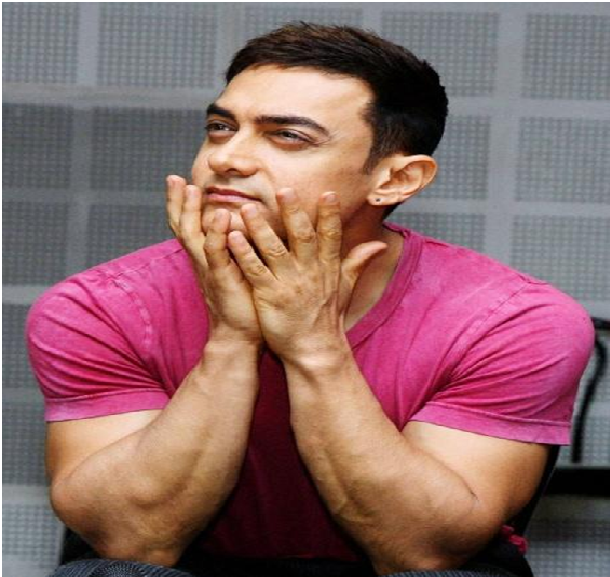Diary From The Tokyo International Film Festival
In Tokyo

Tokyo International Film Festival (TIFF) was launched in 1985 as a biannual event. 1991 onwards it became annual. Among Asia’s leading competitive festivals, TIFF’s awards have changed over the years. However, the Tokyo Sakura Grand Prix for the Best Film has remained its top award. Other regular prizes include the Special Jury Award and best actor, best actress and best director awards. TIFF now takes place in Tokyo’s Roppongi Hills development. Its events include open-air screenings, voice-over screenings, and appearances by actors, seminars and symposiums related to the film market, and sight-seeing tours that connect to the country’s unique setting and culture.
Aamir Khan at the Fest
TIFF has always shown an interest in Indian cinema screening unusual films such as S S Rajamouli’s “Makkhi” (2012) and Anant Gandhi’s “Ship of Theseus” (2012) in previous years.
2014 TIFF screens two unusual and polarised Indian films. One features in ‘World Focus -Discovering Asian Cinema’ -- the widely traveled “Song of Apu” (Apur Panchali) directed by Kaushik Ganguly. It traces the real life story inspired by Subir Banerjee, the child actor who played the iconic role of Apu in Satyajit Ray’s masterpiece “Pather Panchali”. Despite such a prime start to an acting career, ‘Apu’ Banerjee never took another film role in his life. Eerily enough, his real life existence started bearing an uncanny resemblance to the 'reel life' Apu.
TIFF 2014 also welcomes Aamir Khan as a high profile guest appearance at the Special Screening “Dhoom: 3” directed by Vijay Krishna Acharya. The film is expected to screen on October 29. This marks Aamir Khan’s first official visit to Japan. He is traveling with his wife Kiran Rao and their son Azad Rao Khan. It is said that the family may celebrate Kiran’s birthday (November 7) in style in Japan.
Doors Open for Indian cinema
2014 TIFF’s rich feast of international cinema and Japanese films augurs well for India. The festival’s scenario now reflects Japan’s doors opening to release Indian films.
Mr.Aki Sugihara, the executive vice president (international operations) of Japan's oldest film production and distribution firm, Nikkatsu Corporation, now famous as the new Pioneer of Indian Cinema in the film industry Of Japan, first came to India in 2011 to attend the Mumbai Film Mart (MFM), an annual business-to-business platform at the Mumbai Film Festival. Since then, his company has released four Indian films in Japan –“3 Idiots” (2009) , which I gather is still showing, Farhan Akhtar’s “Don 2” (2011) starring Shah Rukh Khan, Kabir Khan’s “Ek Tha Tiger” (2012) starring Salman Khan and Yash Chopra’s “Jab Tak Hai Jaan” (2012) starring Shah Rukh Khan. Subsequently Gauri Shinde’s “English-Vinglish” too had a good release.
3 Idiots and Bachchan
When “3 Idiots” unleashed in Japanese markets in June 2013, it went on to collect around ¥100 million (61 million) in its first two weeks, making it the highest grosser Hindi film ever in Japan. It was nominated for the Japanese Oscar (the foreign films category along with other Hollywood films). Mr Sugihara affirms that the number of Indian releases will soon double. He has also been busy with the release of “Makkhi” in his country.
Korean-born Japanese filmmaker Sang-il Lee (“Hula Girls”, 2006) showcased his “Unforgiven” last year in 44th International Film Festival of India (IFFI, Goa), where he said in an interview, "It's my first time in India … I can say that Amitabh Bachchan and the film '3 Idiots' are very popular in Japan." Rajinikanth sets the Trend
The acceptance of a more wide-based collection of new Indian films follows the phenomenal appeal of Tamil superstar Rajinikanth in Japan ever since his 1996-super hit “Muthu” (1995) released in the country. It ran for a record 23 weeks, to about 90 percent occupancy, and became a top hit in Japan. It then had a successful cross country run through the WOWTOW private TV channel and DVDs, finally making it to the coveted broadcast list of NHK, which aired the film in 2001.
Since then, Rajini is a household name in Japan and the most popular Indian star in the country. Now Aamir Khan follows in his wake. His appearance at 2014 TIFF promises to fuel Japan’s burgeoning interest in Indian cinema.



